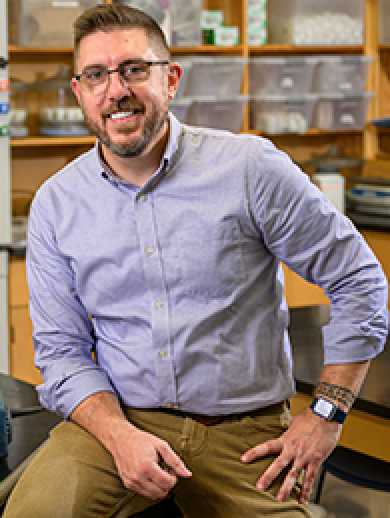Tree-rings reveal the legacy of Indigenous cultural burning in the Southwest USA
Abstract
Studying the influence of Indigenous people on ancient and historical fire regimes has been methodologically challenging. In the Southwest United States, well-replicated fire histories suggest that abundant lightning and suitable climate conditions drove frequent low-severity wildfires in dry pine forests independent of human activities even as ethnography provided hints that Indigenous populations used fire in myriad land use contexts. In recent studies using tree-ring fire history records, archaeology, and ethnohistory from pine forests in Arizona and New Mexico, Dr. Christopher Roos and colleagues demonstrate that Indigenous foragers, pastoralists, and farmers influenced Southwestern fire regimes in similar ways. In Arizona, networks of tree-ring site reveal that small and highly mobile populations of Ndee (Western Apache) increased the frequency of fires while shrinking fire size, altering fire seasonality, and overall reducing the influence of climate on fire activity.Using tree-ring records across the region, Hemish farmers (Pueblo of Jemez), Diné pastoralists (Navajo), and Nde foragers (Chiricahua Apache) all reduced the influence of climate on fire activity during periods of most intense land use and fire stewardship in their traditional territories. This research shows that population size, culture, and economic organization were not limiting variables on the influence of Indigenous populations on fire regimes and that new methodological approaches may offer new insights into long histories of Indigenous fire stewardship.
About the Presenter
Professor Chris Roos | Southern Methodist University
Professor Christopher I. Roos is an environmental archaeologist whose primary areas of interest and expertise are in human pyrogeography and behavioural geoarchaeology. For two decades, he has directed interdisciplinary research projects on the long-term interactions of human societies, climate, and wildfire in the southwestern United States. More recently, Roos has expanded his fire work to include collaborative research projects in Montana, Fiji, and Australia. Roos' scholarship has been extensively funded by the National Science Foundation and has appeared in various peer-reviewed journals, including Science, ScienceAdvances, Nature Ecology & Evolution, Proceedings of the National Academy of Sciences, Journal of Archaeological Science, and Journal of Biogeography. At SMU, Roos directs the Environmental Archaeology Lab.
About Archaeology Working Papers
The Working Papers in Archaeology seminar series provides a forum for dissemination of archaeological research and ideas amongst UQ archaeology students and staff. All students are invited to attend the series and postgraduate students, from honours upwards, are invited to present their research. The aim is to provide opportunities for students, staff and those from outside UQ, to present and discuss their work in an informal environment. It is hoped that anyone interested in current archaeological directions, both within and outside the School and University, will be able to attend and contribute to the series.
